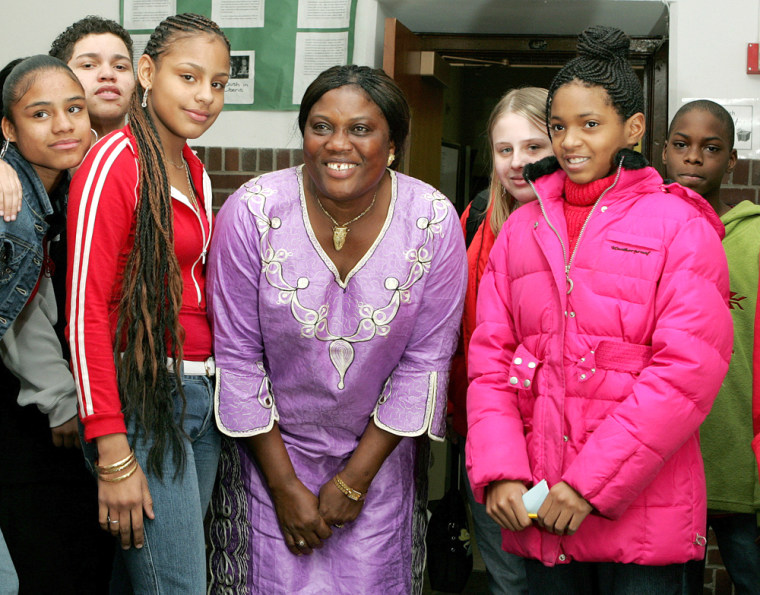In her middle school classroom, Beatrice Munah Sieh spends her days teaching math, science and reading to students with learning disabilities. Soon, she will take on a much different challenge — leading Liberia’s police force.
Sieh, 48, is returning to her home country to become the tiny West African nation’s first-ever female police chief.
Ellen Johnson Sirleaf, Africa’s first elected female head of state, tapped her for the position last month as part of a promise to appoint more women to top posts in a country that has been dominated by male politicians and warlords.
“Our country is starting from zero, from bottom, and the first thing we have to do is fight crime,” Sieh said before her final day teaching at Grace A. Dunn Middle School on Friday.
Returning home
Founded by freed American slaves in 1847, Liberia was once prosperous and peaceful, but after 25 years of brutal violence, the nation is impoverished and struggling to recover. Some 200,000 people have died in the country’s back-to-back civil wars.
Sieh, with 18 years of police experience in Liberia, was deputy director of police operations before fleeing with her three children in 1996.
The police chief at the time was Joseph Tate, one of the most powerful men under now-deposed warlord-turned-president Charles Taylor. Sieh said she had confronted Tate about apparent corruption, which elicited a phone call from Tate just before gunmen shot up her house.
Luckily for Sieh, she wasn’t home, but she knew it was time to leave the country.
“I felt lucky and I got out of there,” Sieh said.
Since she already had some teaching experience in Liberia, Sieh took up the profession when she moved to the Trenton area. She started working as a substitute teacher in Trenton in 1997, then took a full-time job in 2000.
The opportunity to return home, and to her old profession, was offered after Taylor was driven into exile in Nigeria. Liberia’s Senate still needs to approve Sieh’s appointment, but she is expected to easily pass confirmation hearings.
Opportunities for women
“There is a gender revolution in our society today. Women are just as capable as men are,” said Joseph Korto, a presidential candidate in last year’s elections who is education minister.
Once she is in her post, Sieh will be in charge of a 3,500-strong police force that the United Nations is spending $8.5 million to train. So far, about 2,000 new police are on the streets, though they aren’t allowed to carry guns yet. About 15,000 peacekeepers have been deployed in Liberia since 2003.
She has said her first act will be issuing new badges and confiscating old ones held by rebels, who used them to impersonate police and commit acts of torture and robbery.
Sieh says she will miss her students, and two of her three sons are grown and will be staying behind when she leaves at the end of March. Still, she said rebuilding a police force suspected of human rights abuses is vital for her country’s recovery.
She joked that police officers were dreading her return because they’ll really have to work when she gets back.
“They’re happy I didn’t stay and play hero and die,” Sieh said. “They’re happy I’m able to return to help make people safe.”
